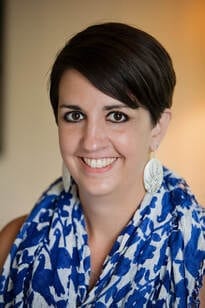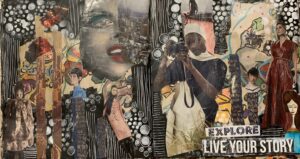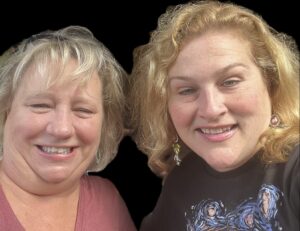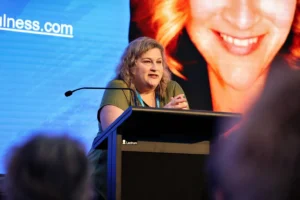I hate this thought process and don’t want to live in fear of a tragedy happening to my family, but it’s something I can’t shake. These feelings reveal themselves in the conversations I have with my kids about what to do if a shooting occurs in a public setting. Not to terrify them, but to prepare them in a time of crisis. Unfortunately, this is a common dialogue I have with them to teach them how to keep themselves safe, and they have already gone through this narrative in their schools where they practice lockdown drills and have even been exposed to shootings within our own community. Again, though we weren’t personally affected by these tragedies by being there or having a friend or family member involved, these traumas do affect me personally as I move through the world and teach my kids how to move through the world. I have a heightened sense of worry and anxiety for my family and friends because you never know when it is going to happen.
As an EMDR therapist, I am acutely aware of how trauma can impact individuals in a variety of ways. It is important to understand how mass shootings and community traumas impact not just the direct victims but also impact the community as a whole. The obvious application of EMDR therapy is with any person who was directly involved in a shooting as a victim. There may be images, sounds, smells, somatic sensations, and other stimuli that are triggering and bring the experience flooding back into the present creating a fight, flight, or freeze response. All of these can be processed with EMDR therapy, releasing the emotional charge associated with these triggers and distancing the past from the present.
Survivor guilt is often talked about in conjunction with shootings. My friend was killed, and I survived. A stranger died saving me; if I was at that event that day, it would have been me that was killed. Our brain tricks us into believing that if I was there I could have stopped it, it’s my fault she died, it should have been me, or any number of negative beliefs that our brain uses to try to make sense of what happened. The problem is that these beliefs are just not true and most of the time our rational brain knows this (the neocortex). Our trauma brain (limbic and reptilian) just hasn’t caught up and is in fight, flight, or freeze mode. When you process the traumatic memories, the trauma brain links up with the rational brain, bringing an adaptability to these negative beliefs.
Hearing about these events on the news or through stories told by survivors can be traumatizing in and of themselves. This can instill the same trauma response as directly experiencing a traumatic event. These vicarious traumas can be reprocessed in the same manner using EMDR therapy by targeting the corresponding images you have about these events. Reprocessing these events with EMDR therapy can help desensitize the horrific pictures that go along with a mass tragedy. It allows you to bring these images and memories to an adaptable place letting go of the associated negative beliefs, putting the past in the past and building resiliency. By doing so, you can engage in everyday life and feel empowered.
As I take my kids shopping this afternoon for their first day of school outfits, I will still talk to them about what to do if some crisis occurs to prepare them to keep themselves safe. However, I will do this from a place of preparedness and not fear. I will also talk to them about the different tragedies in our community and how they can affect change just by treating others with kindness and respect and putting more positivity out into the world. I hope to instill in them a sense of safety, empowerment, hope, and love. I hope and pray nothing like this directly affects us, but with the frequency of these occurrences, I fear it is inevitable. My hope is that as we help people to heal and show loving kindness to others, the occurrences of these tragedies will diminish.





One Response
I like the valuable info you provide in your articles. I’ll bookmark your blog and check again here regularly. I am quite sure I’ll learn plenty of new stuff right here! Good luck for the next! http://www.m106.com